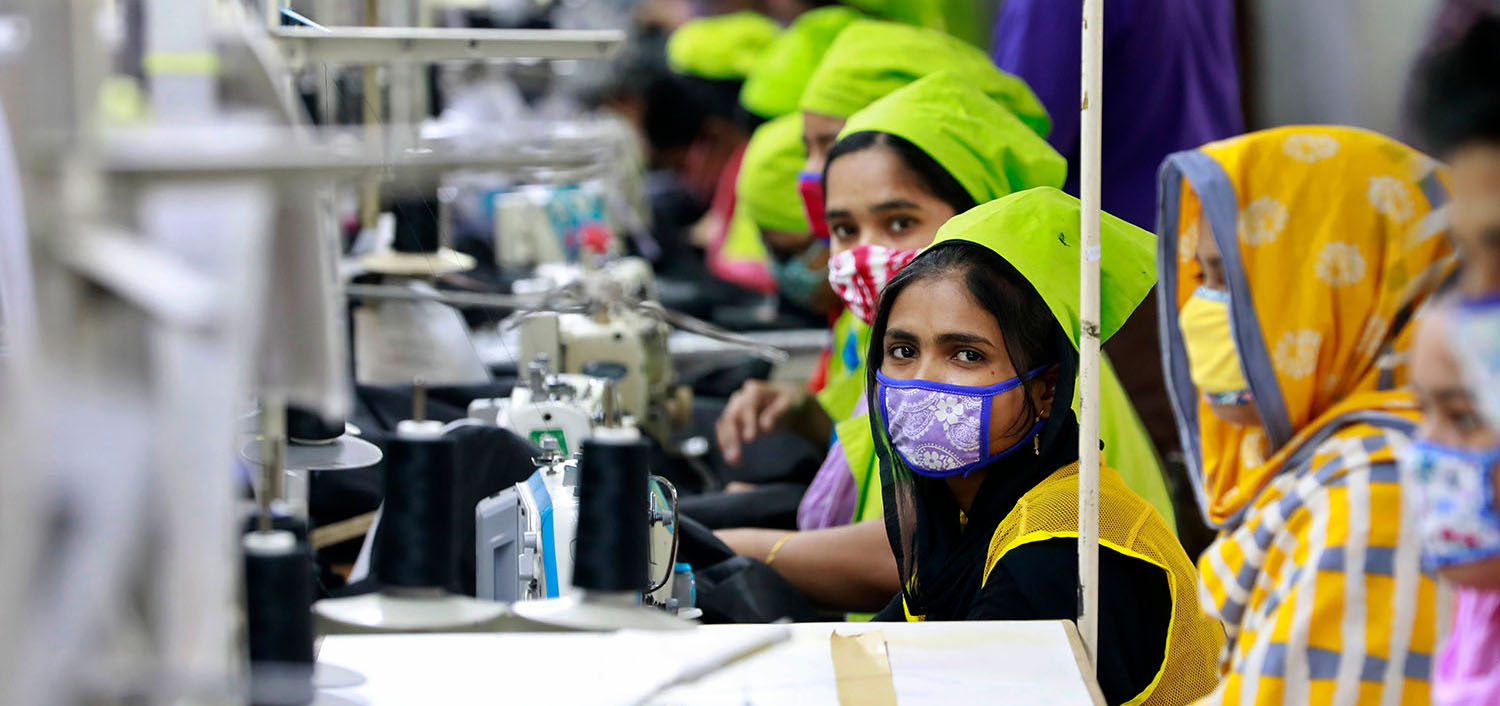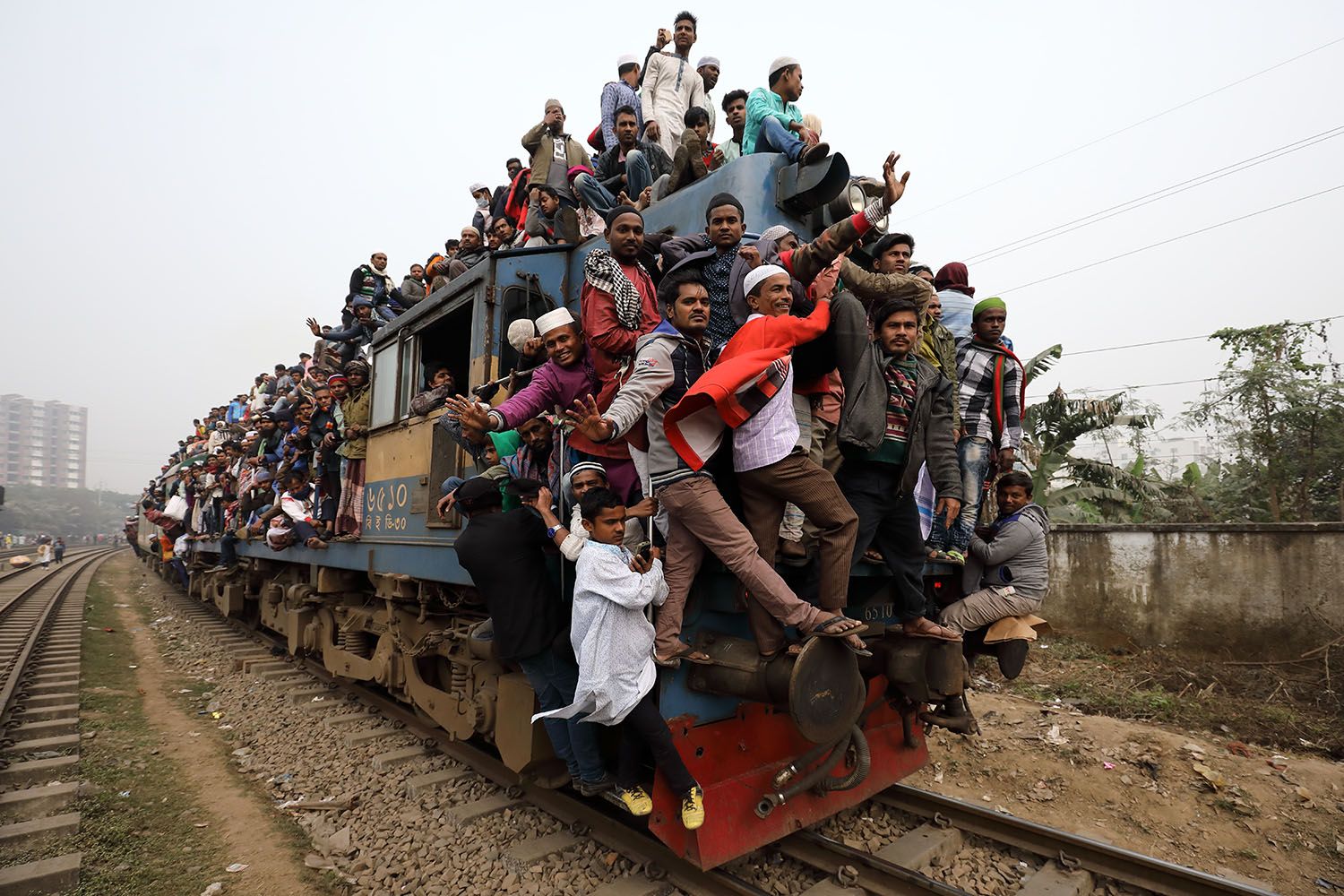By Tristan Mañalac
[dropcap font=”” size=”90px” background=”” color=”” circle=”0″ transparent=”0″]I[/dropcap]n early March, Bangladesh recorded its first cluster of cases of the new coronavirus disease 2019 (Covid-19). The country’s index cases were a pair who had recently flown back from Italy, and one of their family members. The patients were tested, and their contacts traced and isolated. But by then, it was already too late.
A couple of weeks, a handful of new positive cases, and at least one related death later, the government put the country on lockdown to curb the spread of the pathogen. What was initially planned as a week-long quarantine ultimately lasted for months, following repeated extensions.
In spite of this, the number of cases and mortalities in Bangladesh continued to climb. News outfits noted that just as the first quarantine was set to end, infections and deaths started accelerating. The situation has only gotten worse.
Note: Hover over the lines to see exact counts, and click on the legend to isolate the desired metric.
The graphic shows the timeline of lockdowns and subsequent extensions in Bangladesh to curb the Covid-19 pandemic. The government first put the country under quarantine on March 18, when there were just eight recorded coronavirus cases. The lockdown was only supposed to last for a couple of weeks. But as cases and deaths continued to climb, the government strung extension after extension, before finally lifting the lockdown on May 30. A week later, however, the number of infections swelled anew, forcing the government to reinstate area-wide shelter-in-place measures.
Data sources: News and CSO reports, Our World In Data
On May 30, a day before the lockdown was supposed to be finally lifted, Bangladesh recorded close to 2,000 new cases and 28 deaths, at the time its highest daily spike in mortality.
And yet, according to a report released by a group of citizen researchers, journalists, lawyers, teachers, and human rights activists, the actual picture is even worse than what the official figures paint.
Questions about the accuracy of the death toll have echoed throughout national media, focusing on the discrepancy between the official tally and accounts from cemeteries and crematoria across the country. There were also complaints that patients who died of Covid-19 symptoms had not been tested posthumously, which may have further deflated the official body count.

While the Covid-19 pandemic paralyzed the transport sector, the garments industry sat comfortably outside the reach of the lockdown… putting their workers at serious health risk.

The unfolding crisis is compounded by a shaky healthcare system buckling under the weight of the outbreak. Between March 10 and May 20, the report says at least 122 patients died without receiving medical attention.
It then comes as no surprise that, only a week after the restrictions were finally eased, the government already had plans of reinstating area-wide lockdowns.
Industry illness
In a very literal sense, the Covid-19 lockdown ground the country to a halt. Restrictions on mobility drove around 6 million workers in the transport sector out of their occupations, deprived them of their livelihoods, and brought their families precariously close to hunger.

To make things worse, workers find themselves on the losing end of a slew of opportunistic racketeering. Instead of standing up for and breeding solidarity among its members, some labor leaders and transport owners continue to exact association dues from them even as the transport workers sink deeper into hardship, the authors of the report claim.
“Most of the top leaders in the transport sector, who are booming with toll money, are not on the side of the workers at this time,” they wrote. Indeed, some top-level organization officers even extort money from transport workers just to get their names on an eligibility list for government assistance.
There have also been daily collections from workers, ostensibly for a pooled welfare fund. However, according to the report, the country’s Ministry of Labor has said that there is no existing legal framework to support the fund so it may be impossible to use it for the intended purpose.
Neither do these collections have any sort of detailed, extensive documentation. The transport workers have no record of their contributions. This has allowed the fund managers to “quickly [deny] the existence of anything called welfare fund,” the report added.
While the Covid-19 pandemic paralyzed the transport sector, the garments industry sat comfortably outside the reach of the lockdown. In what the report calls a “state of intentional indecision,” members of the Bangladesh Garment Manufacturers and Exporters Association continued to operate their factories, putting their workers at serious health risk.
By late April, amid a continuing swell of cases, hundreds of factories were operating in full swing. As industry groups claimed that adequate health protocols were in place and were being followed, garment workers started testing positive for the virus. Between April 9 and May 7, 98 garment workers tested positive for Covid-19 — and factories remained open despite this.
Workers who tested positive were sent on leave and often, their family was sent back home, away from the industrial centers, the report claims. This artificially drove down the official tallies in these areas.
Even as they face considerable health risks, workers in the garment industry still have to contend with withheld wages, the report continues. Because of the lack of specific and pointed guidelines from the government, many workers missed out on their salaries in March, when some factories closed down due to the lockdown.
At an April 30 roundtable organized by the Bangladesh Institute of Labor Studies, Shibnath Roy, chief inspector of the Department of Inspection for Factories and Establishment, said that more than 100,000 workers had still not received their wages for March.
Liberties on lockdown
As workers and labor leaders protested against these offenses, they soon found themselves on a police watch list. According to the report, at least five workers in the Ashulia industrial area, just outside Dhaka city, were “called” to the local police station, where they were detained for a whole day. Only after the workers promised to “not write anything provocative on social media” were they released on bond.
This mirrors the worrying state of civil and political rights in Bangladesh under the Covid-19 lockdown. “Instead of protecting the freedom of expression and opinion about the coronavirus pandemic, the authorities have violated the rights of journalists, doctors and health workers, lawyers, teachers-students, garment workers, and human rights activists through assault and detention,” the report’s authors wrote.
From March 6 to May 31, the country’s Digital Security Act was invoked in around 70 cases, at least half of which were against journalists. Thirteen journalists, along with four garment workers, two lawyers, two writers, and one cartoonist, were arrested and sent to jail. Scores of people were also picked up and detained on accusation of spreading rumors, false news, or misinformation.
Such a clampdown on free speech comes hand-in-hand with intrusions into personal privacy. To further the offensive against Covid-19, the Bangladeshi government tapped into monitoring data from mobile phones. While this type of tracing and surveillance is invaluable for public health, it also carries with it an inordinate amount of risk because individuals allow the government access into their private personal and digital spaces.

As the Covid-19 pandemic tears through Bangladesh … the virus also exacerbates the country’s ills in governance. Acting only in self-interest, obscuring the truth, and forsaking the weak are ineffective public health solutions.

Because of the steep asymmetry in power, the propensity for abuse is just too great. The stakes are even higher in Bangladesh, where this technology is being unleashed without strong legal tethers for the protection of personal information.
Confusing the exercise of civil liberties with threats to national security, these restrictions embolden a law enforcement system that operates with violence and impunity. Between 11 April and 31 May, the report counts 36 victims of extrajudicial killings, 13 of whom were Rohingya.
The report claims that 15 of these deaths were at the hands of the Rapid Action Battalion, an elite unit of the Bangladesh police that battles crime and terrorism. Nineteen deaths were by the police and three were by the Border Guard. Nearly half of these killings happened while the victims were in police custody.
As the Covid-19 pandemic tears through Bangladesh, exposing and exploiting weaknesses in its healthcare system, the virus also exacerbates the country’s ills in governance. Acting only in self-interest, obscuring the truth, and forsaking the weak are ineffective public health solutions.
If there is anything to be learned from this crisis, it is that health is communal. A healthcare system crumbles by its weakest link. ●
This article was based on a comprehensive report by 12 independent individuals who are recognized human rights defenders and democratic rights activists. The report assessed the state of human rights in Bangladesh amid the Covid-19 pandemic through an “analysis, review and criticism” of news reports regarding human rights violations across the country between April 11 and May 31, 2020. The collective also conducted interviews with workers and labor leaders, as well as reviewed legal documents where applicable.
















